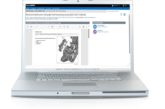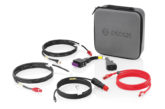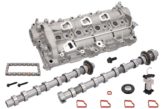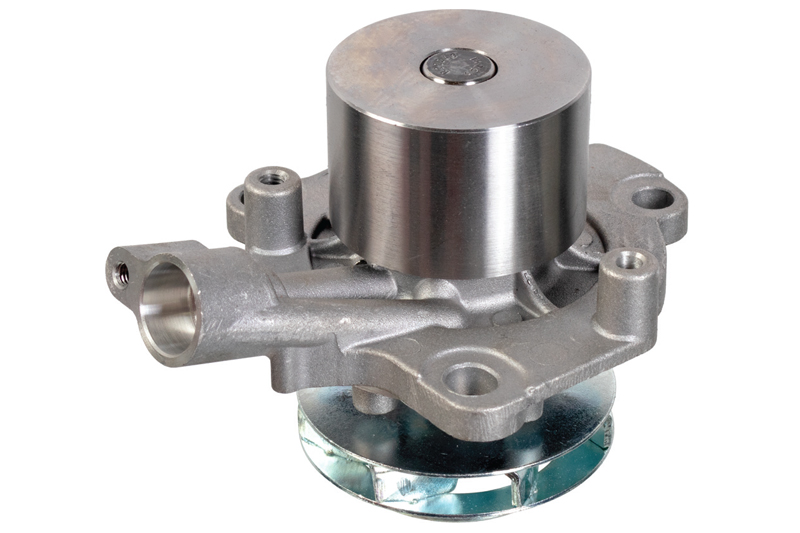
Febi explores some common water pump faults across a range of makes and models.
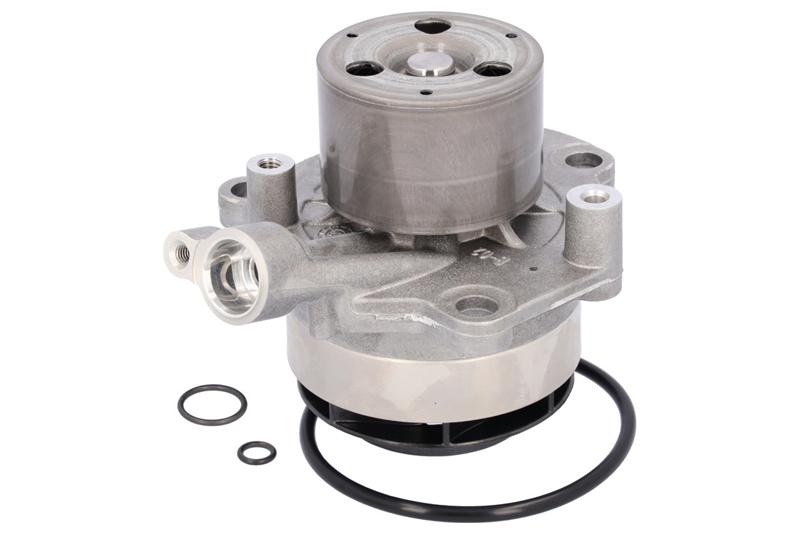
Models
Various Audi, SEAT, Škoda and Volkswagen models with 1.6 & 2.0 TDi engines.
Fault
The engine is overheating, the coolant temperature gauge reads over 110°C and the interior heater is performing poorly. Additionally, cooling system fault codes may be logged in the engine control unit (ECU).
Cause
The water pump fitted to these vehicles has an ECU-controlled collar, which interrupts the coolant flow to make the engine more thermally-efficient. However, the control collar can seize, or the plastic impeller can break-up or come away from the shaft.
Solution
Ensure the engine is cool, then remove the coolant-filler cap. Remove the small pipe to the coolant header tank and hold this over the filler neck of the header tank. There should be a small trickle of coolant flowing with the engine at idle, and this should increase in flow upon increasing the engine speed. If the flow rate does not increase, this would suggest a faulty water pump.
Replace the defective water pump with febi 180948, which features an improved control-collar design; this has been thoroughly tested to eliminate the potential failure of the original water pump. The solenoid valve must be removed from the old original pump and fitted to the new pump, including new seals, which are provided in the kit.
Fill the cooling system with the correct coolant, then vacuumbleed the cooling system. Finally, carry out the cooling system bleeding procedure using a suitable serial-diagnostic tool to expel all the air from the cooling system.
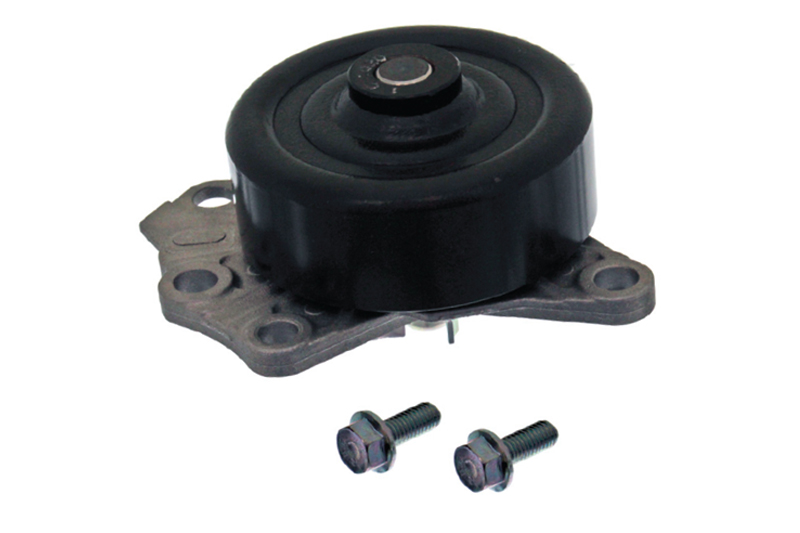
Models
Citroen C1 1.0, Daihatsu Cuore VII 1.0/Sirion 1.0, Peugeot 107 1.0, Subaru Justy 1.0, Toyota Aygo 1.0/Yaris 1.0.
Fault
The water pump leaks.
Cause
The water pump fitted by the vehicle manufacturer can leak, because the material used is perforated steel sheet. In the worst case, this can lead to significant engine damage.
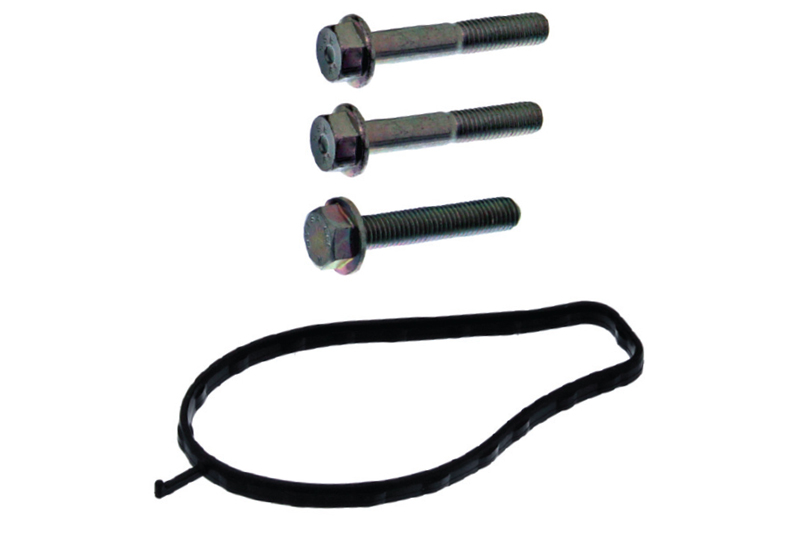
Solution
febi recommends using water pump no. 32682. This modified version of the water pump is manufactured from aluminium die casting. This makes the pump significantly stronger and prevents leakage. Additionally, febi supplies water pump 32682 including the required gasket and suitable bolt set.
Fitting Tip: When fitting the new version (32682), use the bolts supplied with water pump. Torque setting for bolts is 28nM. The vehicle manufacturer’s specifications should always be followed. Both old and new versions are still available in the aftermarket; however the new version does not contain the required bolts.
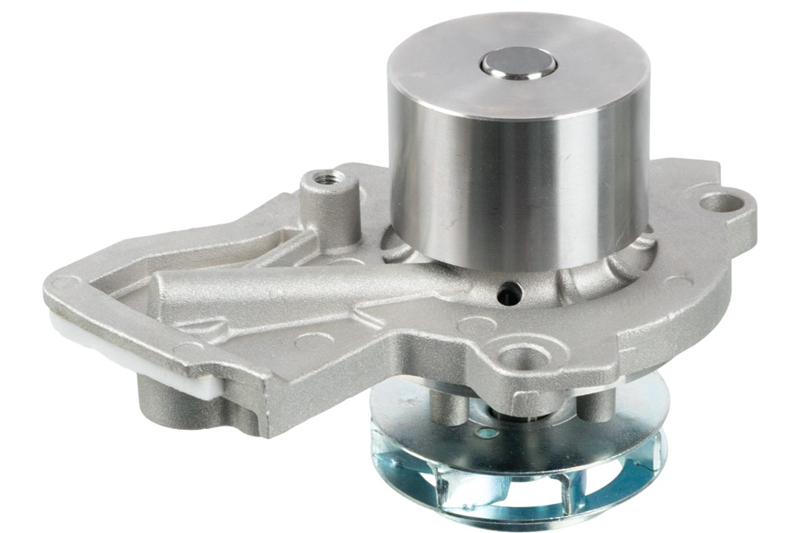
Models
Various Volkswagen, Audi, Seat and Skoda models fitted with the 1.4 litre TDi engine.
Fault
Engine overheating, coolant temperature gauge reading over 110° C and poor interior heater performance. Also cooling system fault codes maybe logged in the engine control unit.
Cause
The water pump fitted to these vehicles has an ECU controlled collar, which interrupts the coolant flow to make the engine more thermally efficient. However, the control collar can become seized, or the plastic impeller can break up or come away from the shaft.
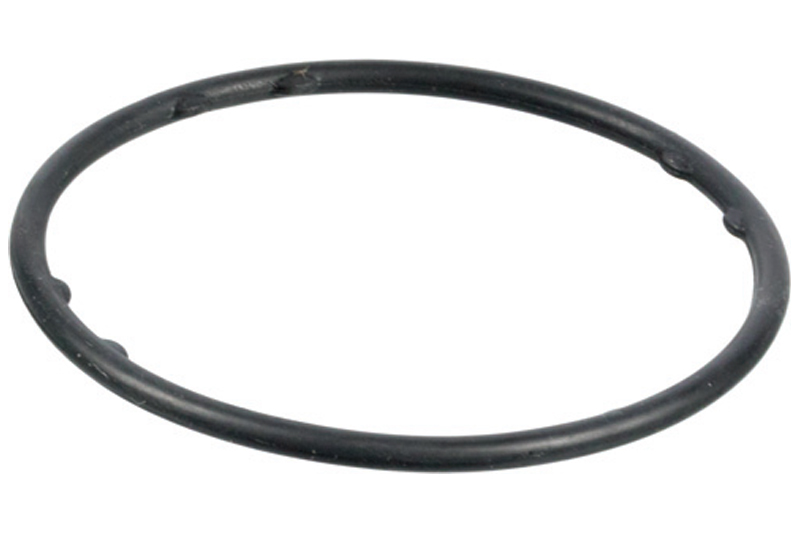
Solution
Ensure the engine is cool, then remove the coolant filler cap. Remove the small pipe to the coolant header tank and hold this over the filler neck of the header tank, there should be a small trickle of coolant flowing with the engine at idle. This should increase in flow when the engine speed is increased. If the flow rate does not increase, this would suggest a faulty water pump. Replace the defective water pump with febi 108778, this is a conventional water pump, which eliminates the potential failure caused by the control collar. The solenoid valve must be removed from the old pump and fitted to the new pump. This is so the engine management system can recognise it. Failure to replace the solenoid valve will log an engine management fault.
Fill the cooling system with the correct coolant, then vacuum bleed the cooling system. Finally carry out the cooling system bleeding procedure, using a suitable serial diagnostic tool, to expel all the air from the cooling system.
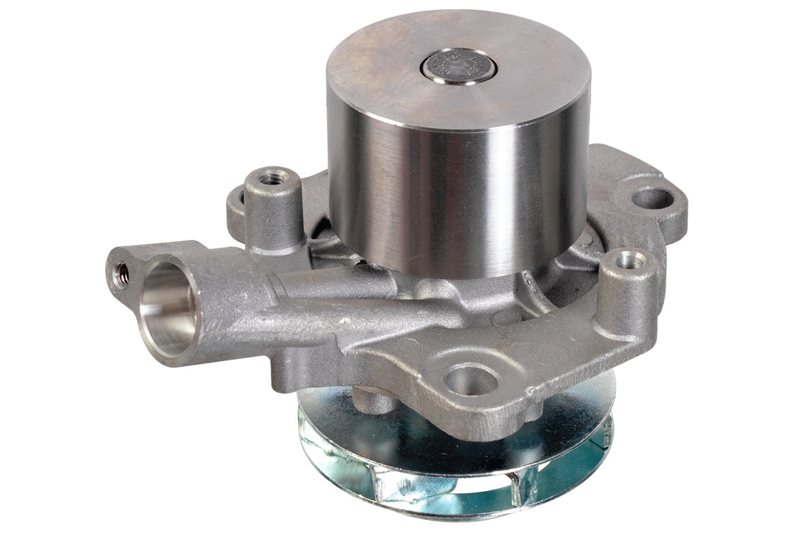
Models
Audi, Seat, Skoda, Volkswagen – Various models 1.6 & 2.0 TDi engines.
Fault
Engine overheating, coolant temperature gauge reading over 110° C and poor interior heater performance. Also cooling system fault codes maybe logged in the engine control unit.
Cause
The water pump fitted to these vehicles has an ECU controlled collar, which interrupts the coolant flow to make the engine more thermally efficient. However, the control collar can become seized, or the plastic impeller can break up or come away from the shaft.
Solution
Ensure the engine is cool, then remove the coolant filler cap. Remove the small pipe to the coolant header tank and hold this over the filler neck of the header tank, there should be a small trickle of coolant flowing with the engine at idle. This should increase in flow when the engine speed is increased. If the flow rate does not increase, this would suggest a faulty water pump.
Replace the defective water pump with febi 103078, this is a conventional water pump, which eliminates the potential failure caused by the control collar. The solenoid valve must be removed from the old pump and fitted to the new pump. This is so the engine management system can recognise it. Failure to replace the solenoid valve will log an engine management fault.
Fill the cooling system with the correct coolant, then vacuum bleed the cooling system. Finally carry out the cooling system bleeding procedure, using a suitable serial diagnostic tool, to expel all the air from the cooling system.

